#Indigeneity
Explore tagged Tumblr posts
Text

Just use your damn brain 🧠
#indigenous#indigeneity#israel#secular-jew#jewish#judaism#israeli#jerusalem#diaspora#secular jew#secularjew#islam#judea#Samaria#Jews are indigenous to Judea#islam is a cult#islam is a death cult
447 notes
·
View notes
Text
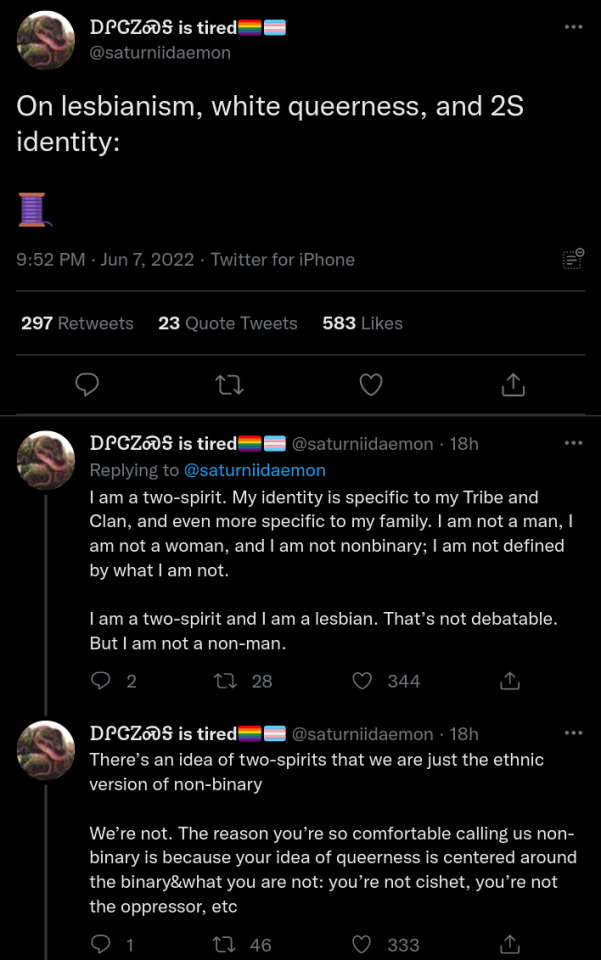
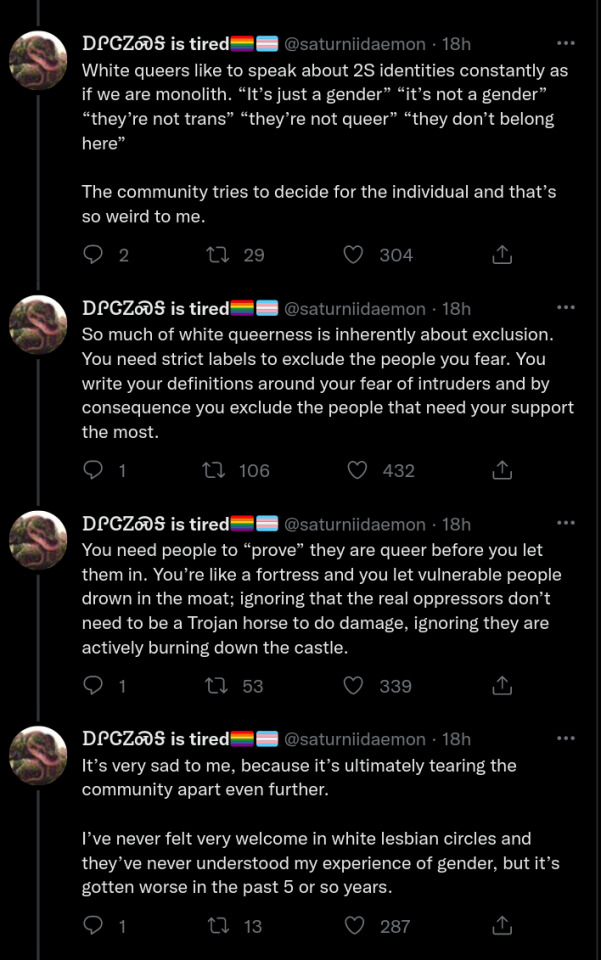
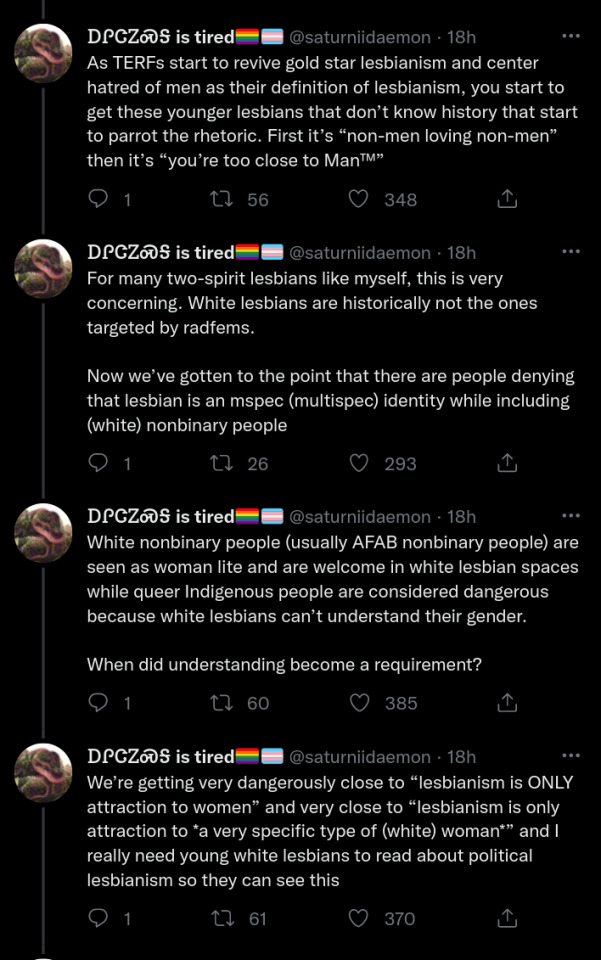


So apparently it’s that time of year again where I have to post about this.
On lesbianism, white queerness, and 2S identity
Text below readmore
I am a two-spirit. My identity is specific to my Tribe and Clan, and even more specific to my family. I am not a man, I am not a woman, and I am not nonbinary; I am not defined by what I am not.
I am a two-spirit and I am a lesbian. That's not debatable.
But I am not a non-man.
There's an idea of two-spirits that we are just the ethnic version of non-binary
We're not. The reason you're so comfortable calling us nonbinary is because your idea of queerness is centered around the binary&what you are not: you're not cishet, you're not the oppressor, etc
White queers like to speak about 2S identities constantly as if we are monolith. "It's just a gender" "it's not a gender"
"they're not trans" "they're not queer" "they don't belong here"
The community tries to decide for the individual and that's so weird to me.
So much of white queerness is inherently about exclusion.
You need strict labels to exclude the people you fear. You write your definitions around your fear of intruders and by consequence you exclude the people that need your support the most.
You need people to "prove" they are queer before you let them in. You're like a fortress and you let vulnerable people drown in the moat; ignoring that the real oppressors don't need to be a Trojan horse to do damage, ignoring they are actively burning down the castle.
It's very sad to me, because it's ultimately tearing the community apart even further.
I've never felt very welcome in white lesbian circles and they've never understood my experience of gender, but it's gotten worse in the past 5 or so years.
As TERFs start to revive gold star lesbianism and center hatred of men as their definition of lesbianism, you start to get these younger lesbians that don't know history that start to parrot the rhetoric. First it's "non-men loving non-men" then it's "you're too close to Man™"
For many two-spirit lesbians like myself, this is very concerning. White lesbians are historically not the ones targeted by radfems.
Now we've gotten to the point that there are people denying that lesbian is an spec (multispec) identity while including (white) nonbinary people
White nonbinary people (usually AFAB nonbinary people) are seen as woman lite and are welcome in white lesbian spaces while queer Indigenous people are considered dangerous because white lesbians can't understand their gender.
When did understanding become a requirement?
We're getting very dangerously close to "lesbianism is ONLY attraction to women" and very close to "lesbianism is only attraction to *a very specific type of (white) woman*" and I really need young white lesbians to read about political lesbianism so they can see this
I don't want to hear "not all lesbians" or "well then they aren't welcome" because every time this rhetoric goes unchallenged you are actively welcoming these people to continue it and make it more and more extreme. Yes, even the kind that seems to have nothing to do with racism
Almost all of your exclusionary rhetoric is based on the racist ideas of political lesbianism and I do not know why you all cannot see that they want to move goalposts. It wasn't just bi lesbians, it wasn't just he/him lesbians, it wasn't just nonbinary lesbians. It's a tactic.
It really feels like young lesbians are not only letting us go backwards, but encouraging it. And that's thanks in part to the historical racism of political lesbianism, but many of these people ARE old enough to think critically and talk to people who've been through this.
So far I've seen this in younger lesbian spaces; the ones with older generations (the ones that don't welcome TERFs) have been pretty welcoming even if not totally understanding, because they at least recognize that you don't need to understand someone's experience to validate it.
But I'm really concerned for the young Indigenous lesbians who don't feel comfortable around older people and are going to these younger lesbian spaces only to be indoctrinated with thinly veiled TERF rhetoric. It makes me very concerned for our spaces as well.
So I'll say again
I am not a non-man and I am not a non-woman. I'm not defined by what I am not. I do not ascribe to your binary-centric definitions of queerness. I experience queer attraction to women. I'm a lesbian. You do not get to use community to decide my individuality.
Thread by ~Alitsanosga
Pronouns: hi'a/vsgina/utseli/uwasa
#two spirit#two-spirit#2slgbtqia+#2 spirit#lesbian#white queers#white queerness#racism#colonialism#political lesbianism#inclusion is survival#indigeneity#indigenous rights
2K notes
·
View notes
Text

Winter Solstice 2024
It is cold and it is dark, but the Winter Solstice brings the promise of light's return and the warming of our world. To celebrate this most important day, we feature a naturally-dyed wool weaving entitled Náhookǫsji Hai (Winter in the North) / Biboon Giiwedinong (It is Winter in the North) held at the Minneapolis Institute of Art (MIA) and produced by Navajo artist D. Y. Begay in 2018. This image, which is only a portion of the slightly larger work, is from our copy of the exhibition catalog Hearts of Our People: Native Women Artists edited by Jill Ahlberg Yohe and Teri Greeves (Kiowa) and published by the MIA in association with the University of Washington Press in 2019.
D.Y. Begay (b. 1953), a Navajo born to the Totsohni’ (Big Water) Clan and born for the Tachinii’ (Red Running into Earth) Clan, is a fourth-generation weaver. Begay’s tapestries encompass her interpretation of the natural beauty and descriptive colors of the Navajo reservation, reflecting on her Navajo identity and her family’s weaving tradition. This spiritual connection to the plants yields the natural colors that are transformed into evocative land formations on her loom. Of the weaving shown here, Jennifer McLerran, curator at the Museum of Northern Arizona and a retired assistant professor of art history at Northern Arizona University, writes:
Most of D. Y. Begay's textiles respond to the Southwest landscape in which she was raised and resides today. For this work, a textile produced with all-natural dyes and handspun wool, Begay traveled to Minnesota in the depths of winter to observe the land surrounding the Grand Portage Indian Reservation of the Ojibwe people. Over an extended period she observed changing light conditions as the sun and clouds moved across the sky, altering the hues of snow and water.

D. Y. Begay with her weaving Confluence of Lavender by Arizona videographer Kelso Meyer, 2016. From the University of Virginia Mellon Indigenous Arts Program.
We wish you a most serene Winter Solstice.
View posts from Winter Solstices past.
View other posts from our Native American Literature Collection.
#Winter Solstice#D. Y. Begay#Winter in the North#Navajo weaving#Navajo textiles#Indigenous artists#Navajo#Ojibwe#textiles#Native American artists#Native Americans#Indigenous#indigeneity#Jill Ahlberg Yohe#Teri Greeves#Jennifer McLerran#Hearts of Our People: Native Women Artists#Native American Literature Collection#Indigenous American Literature Collection#Native American art#Indigenous art
269 notes
·
View notes
Text
So people keep assuring me that Palestinians are also indigenous to the southern levant and...well, I admit I'm skeptical of this. Like, I'm NOT advocating expelling them or genocide, etc. Those are all bad, just questioning the notion of indigeneity here. Mostly as a consequentialist. If Palestinians are indigenous to the Levant, that seems to imply other things. Let's think through this.
We're going to set aside the UN notion of indigenous because that's crafted to exclude Jews and often enough this is a statement by people who reject that and consider Jews to be indigenous, they're often saying both groups are. So...I guess that means something like "A group is indigenous to the region where they underwent ethnogenesis" so we'll take that as our definition of indigeneity. Jews are indigenous to the Levant, check. We're good. Arabs are indigenous to Arabia. All makes sense.
So, anyway, what's an ethnic group? From Wikipedia:
An ethnicity or ethnic group is a group of people who identify with each other on the basis of perceived shared attributes that distinguish them from other groups. Those attributes can include a people of a common language, culture, common sets of ancestry, traditions, society, religion, history, or social treatment.[
Ok, so common language, culture, traditions, history, etc.
So European American Protestants are indigenous to North America? Common history (going back to the 1600s!), identify as a group, believe they have a common culture (even if we need to break things up more finely, you can find common cultures, say, New England, or Midwest, wee American Nations), common language (English, which I will posit is part of why there's basically a moral panic about Spanish and has been almost my entire life, in much of the country). Note that an ethnicity "can include" and doesn't need ALL of these things.
So it seems pretty solid that European American Protestants are, at the least, a collection of ethnic groups unique to North America. Which means they did ethnogenesis here. Which means they're indigenous now.
So...let's be clear, to me this is a reductio ad absurdam. OF COURSE white US protestants are not indigenous to North America! But I've yet to see definitions that mark Palestinian Arabs as indigenous to the Levant without also implying that white Americans are indigenous to fucking Ohio (along with the rest of the country).
Especially when you consider that white american protestant as an identity in this sense is older than a distinct Palestinian identity. It just brings us to the eternal questions that the Israeli/Palestinian conflict brings up and that people REALLY don't want to discuss:
When, if ever, does indigeneity expire? Personally, I think it doesn't, and Jews are and will always be indigenous to the Levant, just like the Cherokee Nation is indigenous to the US Southeast, even though they've been displaced. Though I know many "Pro-Palestine" activists implicitly believe indigeneity does expire, at least for Jews, but even if I weren't Jewish, I wouldn't want that precedent set because it would fuck over EVERYONE
When does a colonizer become indigenous to the place they colonized? This is rarely discussed, but lies implicitly behind a lot of things. Again, I want to avoid setting bad precedents, but I don't see how Palestinian Arabs can have hit this threshold and white people in the US haven't, which leads me to reject the idea that colonizers can ever become indigenous, at least while holding onto the identity that did the colonization (White and Arab, respectively, hell, White Christian and Arab Muslim if we want to get more specific).
Now, I don't believe colonizers need to be killed or expelled, I'm generally against violence outside of self-defense, but I do think that the rhetoric we use matters, and I want to interrogate it.
#jumblr#jewish#israel#i/p conflict#indigeneity#colonization#definitions#reductio argument#legitimately curious if theres a definition that threads this needle
326 notes
·
View notes
Text
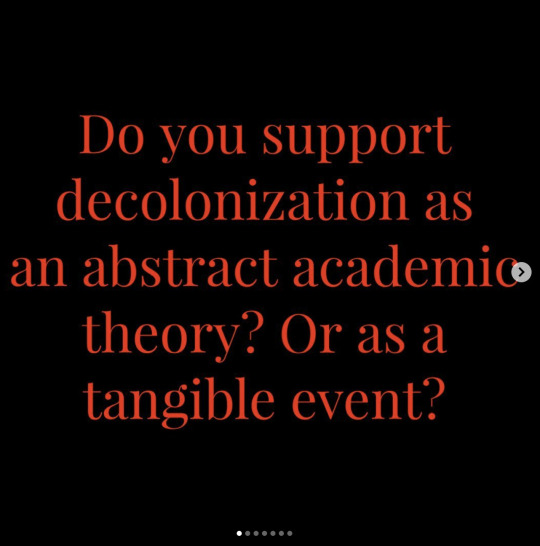
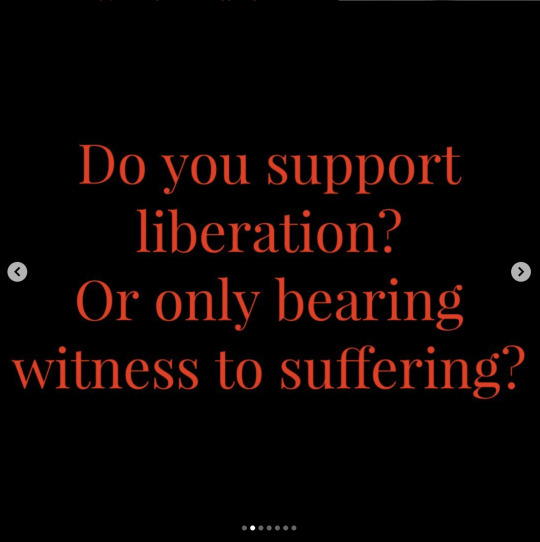
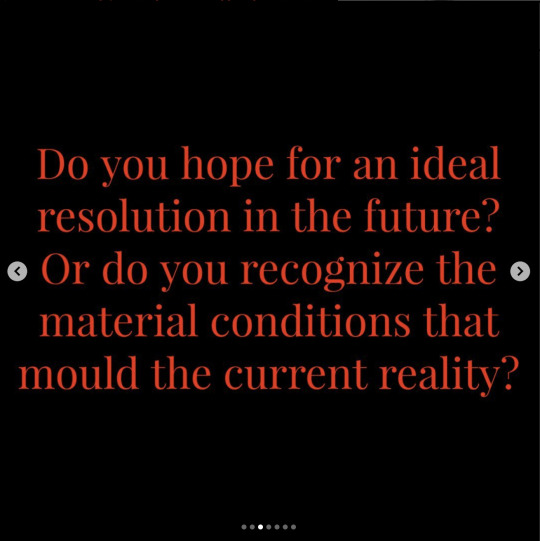
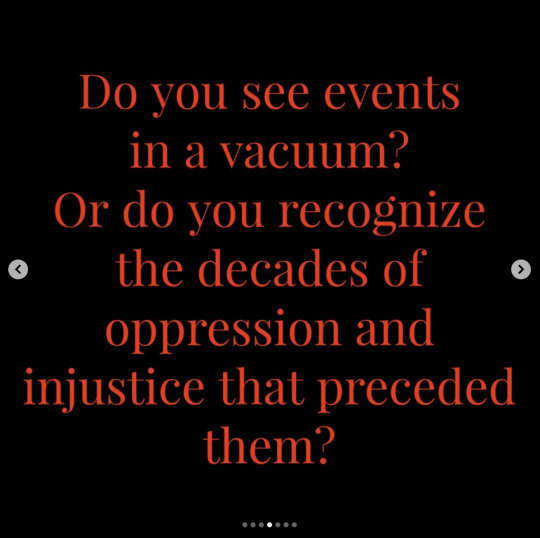

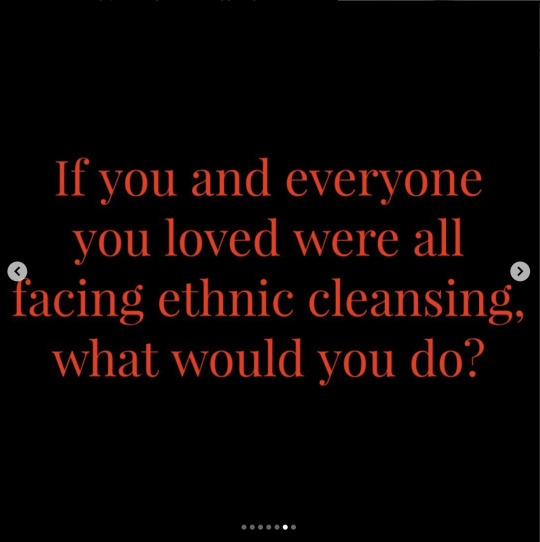
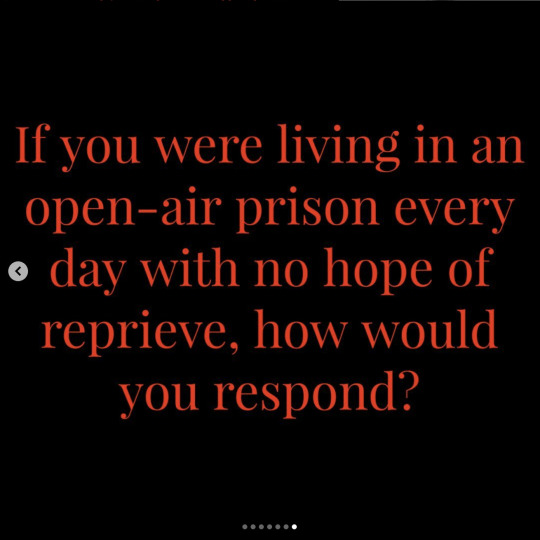
"Questions to keep in mind with the coming news cycle."
Reposting this from @ savesheikhjarrahnow on ig.
Prepare yourself for a torrent of pro-Zionist colonial lies and obfuscations in the Western news. Do what you can to counteract it. Palestine needs your help, now more than ever.
From the river to the sea, Palestine will be free!!! 🇵🇸🇵🇸🇵🇸
#decolonisation#decolonization#decolonialism#decolonize#palestine#free palestine#palestinian resistance#indigenous#zionism#indigeneity#landback#colonialism
2K notes
·
View notes
Text

166 notes
·
View notes
Text

I’ve asked Palestinian Americans who have also drawn parallels between themselves and the First Nations Indigenous peoples what exactly they knew about them or their histories. Given that I’m Canadian and my first work clinicals were on Coast Salish reservations it’s a topic close to my heart. I asked them if they knew the differences between First Nations, Métis and Inuit. They didn’t. I asked if they knew about the six nations. They didn’t. I asked if they knew about the the Proclamation of 1763. They didn’t. The Sioux wars? No. Trail of Tears? Nope. They had zero knowledge on any of the nation’s social organization, spiritual beliefs or traditional ways of life. I already know you have no idea about the symbolic meaning of that headdress or that they were worn by Sioux, Blackfeet, Crow, Plains Cree, and Cheyenne people... And I don’t know whether to laugh or cry that he’s been drawn in a grass skirt? (the men wore leggings). Indigeneity is also not a matter of genetics. It’s defined by historical continuity on a specific common place of origin/land. There is a distinct social, economic, linguistic, cultural and political system which predate colonial societies. The differences just within North America are so widespread it’s impossible to draw those kinds of comparisons… I’m begging you to learn the bare minimum about the people and the histories you’re appropriating.
#cultural appropriation#indigenous americans#indigeneity#anti free palestine#listen i do not and will not pretend that i speak for all indigenous americans because i'm not#how-ev-er it's insidious how the palestinian cause has appropriated real peoples' struggles#and again if we're doing indigeneity by 'who was there first'#then the jews are indigenous to the region
97 notes
·
View notes
Text
Indigenous folks, ex-christians & anyone who's knowledgeable on social issues, I have two questions that have bothered me for a long while and I believe y'all might know how to answer them.
The question: I read a webcomic about community A living on an island along with another community B with different culture & beliefs from them. Community A believes that their culture & religion are the correct ones and that members of community B are dooming themselves to eternal damnation (in a religious sense) if they don't adopt the beliefs & practices of community A.
I saw someone talking about the comic in its comment section, saying that one of the characters who's a member of community B is selfish for not adopting the burial practices from community A's religion, because according to that someone, not burying their loved one like community A believes is correct is " potentially dooming their loved one to eternal damnation".
If you're indigenous, has rhetoric / talking points like this been used against your own religious / cultural practices? Could you give any concrete examples?
If you have religious trauma / are ex christian of any kind, have people used talking points like this to guilt trip, to frighten, or to shame you into obeying religious rules? (People belonging to other religions than christianity are welcome to give their perspectives as well!)
#ex religious#indigenous#indigenous rights#indigenous people#native american#ex hindu#indigenous culture#indigenous resistance#indigeneity#ex christian#ex catholic#exmo#exvangelical#ex baptist#exmormon#tw religion#indigenous history#indigenous pride#first nations#religious trauma#deconstruction#spiritual abuse#religious abuse#social justice#colonialism#colonization#ex jw#ex jehovah's witness#xtianity#religious bigotry
133 notes
·
View notes
Text
Let's decolonize our view of sexuality and gender. In many indigenous societies, and even ancient european ones like ancient greece and rome, sexuality & gender were something that you DO (a way of living), rather than something that you ARE (a fixed identity/biological essence)
#philosophy#queer#sociology#history#colonialism#anarchy#politics#lgbt#lgbtq#bi#bisexual#gay#trans#nonbinary#transgender#mtf#ftm#genderfluid#feminism#feminist#indigenous#indigeneity
63 notes
·
View notes
Text
if azula needs redeeming, why wasnt she?
i read this analysis of Azuko? Zukla? idk but a critique of their sibling dynamic, particularly within the context of doomed siblings, and tho i don’t agree with it, it’s a testament to its writer that there’s innate value in carving out my thoughts from their own.
so a lot of my disagreement boils down to the fact that the way the analysis construed zuko & azula, from characterizing them as doomed siblings, to the way azula’s breakdown is framed, is a problem of taste and inferences, and how these interpretive elements can be incongruent with technical aspects like intent, convention, medium, or the functional mechanics of art overall.
firstly, i think its very important to highlight that while elite art is holistic and multifaceted, it is doubly focused and premeditated, and its constituents all occupy a purpose and position within it, as they are narrative elements first and foremost. which complicates things when creation and consumption are both such human, evocative processes, but i think looking at the rudimentary layers of a story are the north stars in subjective landscapes like this. and most salient of these, is the story’s anti-colonial roots, centering indigeneity explicitly, and the cultural, spiritual and earthly relationships therein, with the main conflict being restoring the dignity and autonomy of the subjugated, alongside the internal work and opposition that are necessitated in doing so. everything stems from that, and though there is complexity and nuance therein, and the story itself is immensely liberal in execution, it is also ultimately a good vs bad narrative, which it has every right to be, bc colonialism is bad, and colonialists are bad.
therefore, atla inherently adheres to convention, and has a preestablished idealistic framework. to illustrate this, it utilizes two central characters, both encapsulations of the dualistic nature of oppressor and the oppressed, and navigated thusly as foils to one another. zuko is thereby, the deuteragonist, and the depth or lack thereof, of his environment are equally conditioned by his position, as the confines of the kid’s tv medium, serialization as well as narrative structuring itself, craft him. kill your darlings and all that lol.
however, these positionalities, while abiding convention, are not binary, and while conclusive, they are not absolutist. zuko for example, is antithetical to a Madonna, stressed by him even having a redemption to realize, and azula too is done an injustice by any reduction to a whore / imperfect victim archetype. this compartmentalization, is luckily ill-fitting in accommodating their totality, and doesn’t incorporate the fact that consequence, in avatar, is not a condemnation of personhood, but a retaliation to action, and has mangled indiscriminately, with azula’s case actually, being the reclamation of principles and in-world intentionality.
to begin with, zuko, while most recognized for his redemption, is not functionally the redemptive character™, he’s an example of the sacrifice, sincerity and labor that are inherent to anti-colonial action facilitated by an absconding oppressor, of the inborn empathy and active resistance that are needed for a system to change, and how you don’t just get there through platitudes or amicability. those thematic niceties are ofc inherent to his story bc he’s fleshed out and the things that inspired him thusly are too, but that emotional and relational floweriness is a consequence of his actions, not their driving force (being embraced by imperial idolization, by his royal family, was not fulfilling), what drove him is a fundamental and intrinsic ideological disdain for the imperialist war machine — it was ultimately, an abstraction of self – by acting in service of others, which unlike letting imperialist standards (e.g. chauvinism and parasitism and “honor”) puppeteer him as an instrument of violence, is ironically, an act of true autonomy and discernment. deriving your value from mutualism and earning one’s stature, instead of asserting yourself on others and letting corrosive and paternalistic worldviews (and by extension the selfishness & self absorption i.e “honor” innate to that) rule your destiny.
azula, however, is meant to be an inversion of that, is meant to reflect what happens when you reject morality or connection, instead letting control and superiority entrap you. she is explicitly a cautionary tale, which also comes with its own oversights and inelegant implications, but she likewise, greatly exemplifies the internal decay and loneliness inherent to alienating yourself through cruelty and stratification. and is it not possible then that a girl who has valued herself by what she can inflict on others, would then have the very sanctity of existence warped at no longer being able to dominate, no longer deemed the ideal? is infection not a thing that savages, before it spreads? in this way, azula is poignant.
as the more intimate face of imperialism, she is humanized in her parasitism, but it is not used to soften her behavior, nor is it used to hand her redemption. it is not smth that she is owed for the very coincidence of her birth or blood, its earned, and she did not earn nor want it.
so when a character that suggested the utter evisceration of marginalized groups, and thereafter tried to murder a personification of colonial survivor’s guilt and endangered practices, is consequently left to mourn her superiority, just as her father before her, its smth we sympathize with within reasonable boundaries. when her brother, who she abused, doesn’t martyr himself to azula’s interiority, instead laboring towards his own destiny and happiness, rather than the genesis of azula’s redemption, that is not inconsistency, it’s peace. its making peace despite the fact that some would rather rot in the entrails of imperialism than afford its victims value, would rather hurt others, and in turn themselves, than embrace healing and progress
— (plus inflicting his values may not in fact heal, when healing is not inherently uniform, and growing is not innately moralistic).
now, there’s a whole nurture vs nature angle to this as well and these ontological arguments are often touchy, yes zuko had ursa and iroh. yes zuko was forced to challenge his preconceptions, but zuko wasn’t diametric to these things, and the supplementations he did receive were always compensatory. zuko was deemed genetically inferior by ozai and thusly ostracized, hence ursa’s gentle partiality, zuko was then mutilated and exiled, and naturally needed supervision, which was provided by an overseer who mirrored his disgrace. if denied these safeguards zuko would’ve been denied even palliative care, whereas azula was perceived as needing none when she was revered positionally and familialy.
yes being pit against zuko was toxic and destructive but its not at all equivocal to the outright abuse zuko suffered. ofc the threat of it was implicit but those who abet or orbit abusers are not inherently under threat, and i think azula is characterized similarly. it's not fear that colors her outburst against ozai, nor coerces her silence, its entitlement and a sanctifying of hierarchies: “i deserve to be by your side.” - it’s respect that earns her silence and it’s the promise of respect that goads her acquiescence, the prospect of accumulation. this is ofc not a healthy mindset to have bc azula hinges her value on perfection, performance and status, and it's evident how the pressure of that collapsed her, but it was a pressure she had embraced before. it was her adeptness that ozai latched onto, and before the inviolability of it was challenged, azula took advantage of her nature, she weaponized it, and it was that eagerness that ozai exploited.
as viewers we process this as the objectification it is, but its reality, is a systemic natured dehumanization, ingrained in any culture that seeks to mechanize its constituents (which is all societies actually. we are all complicit). ozai thinks he is honing her as did his father and his colonialist forefathers prior, and herein is not abuse in the conventional sense, but rather a tradition of commodification that extricates skill and hegemonizes personhood, it’s an existential death necessitated by imperialism. it’s the death of agency. azula embraced this necrotic philosophy until she was confronted with the consequences of her rot, and *that’s* what she got. consequences. of which she was spared throughout.
it was never personal.
sure we get glimpses of her humanity, her vulnerability, but they’re paltry and muddied too by an undercurrent of duplicitousness. azula flaunts zuko’s impending demise, yet later, includes him in her outings. azula relishes zuko’s mutilation, but also fetches him from the beach house. she falsely welcomes zuko back, then implores he join her sincerely. and azula shares her pain from ursa yet spurns softness still, from MaiKo’s juvenile fondness to ursa’s own guiding attempts. azula is ceaselessly cruel to zuko, then spontaneously benevolent to him once he has seemingly subsumed the apparatus of colonialism. and gives him credit for killing the avatar, yet shows a sly inclination of his revival. this isn’t to insinuate that azula is ontologically evil or that she’s an unnuanced, mono-faceted individual. and she was a child. yet zuko’s youth didn’t spare him from the grotesque terrors of death and alienation, and it didn’t temper her perpetual antagonism and bloodlust, she is demonstrably self-serving, and this is evidenced throughout.
this is not to shame her in her passivity, nor an expectation that she martyr herself or even commiserate with her brother. rather, her downfall is a reaping of autonomy, made subject to the tendency of one’s active leanings. in which the choice of her sibling abuse exacerbated her societal abuse, all festering, foremost, the abuse of her own soul.
so, relatedly, is it not possible that a character of her cunning, who emotionally degraded her own sibling while gleefully championing his attempted imprisonment, before graduating to attempted murder by preparing to electrocute him while he was enfeebled on the ship, then later tried to kill aang, tried to kill katara, gloated abt intending to kill zuko at the air temple, injured iroh while making her escape from the gaang + zuko. also endangered and coerced ty lee into joining her, imprisoned mai, nearly killed zuko as he tried to save katara (which was likely her intent, or at least meant to cripple zuko’s composure — dishonoring the agni kai) — need i go on. azula’s benevolence is conditional, and consistently transactional, and so is it not possible then that she gauged zuko’s swaying allegiances against her own armaments - when faced with iroh, a waterbending master, an earthbending master with groundbreaking abilities (>_-), and the literal avatar, after observing their – plus aang’s growth, and having been cornered before, then decided rather, that having another asset, puppet, contingency plan, in her pocket wouldn’t hurt.
maybe she was being benevolent, or maybe, azula, who too sat in liberated territory and was gifted a chance for growth and morality, rejected that chance over the value therein, tenderized for extraction, parasitizing instead. maybe azula too, was acting in the imperialist tradition of exploitation. maybe she holds the capacity for compassion and care — which we have gleaned regardless — but the tangentials and hypotheticals of the world are often not what is actualized, and they are not a thing that can be affected. empathy is an active pursuit, and it is mutualistic, provisional — and so there is not a ‘who’ of azula’s redemption, but a what, the ‘what’ that is to be influenced. the personalization of one’s own form, of an internal receptiveness to commiserate with. bc as is, azula is merely a husk of colonialism, and being a husk of colonialism is meant to be sad, its deliberately tragic, unflinchingly pitiable. disorienting. life shattering. that’s what you’re meant to feel, it is not an inadvertence of zuko’s arc, and it is not a coincidence of the narrative.
she is a trajectory within herself, and her fate is a whole within itself. just as zuko labors towards rectifying his nation bc he needs to, bc there is value in dismantling colonialism, not bc the imperialists are owed it, but bc everyone else is. zuko also watches, not with apathy or boredom as his sister implodes at this, but with pity, with grief, bc azula manipulated herself a bed of corpses, and it is not him who must choose not to lie in it. when healing is intentional, is active, and zuko has chosen to heal. when azula cannot be handheld and shielded from her war crimes and systemic violence bc she wasn’t hugged enough as a child. zuko too lost a core sense of support mournfully young, and moreover at many points in his development journey, but the inclination that told him to speak up in the war room is doubly the same inclination that told him to afford jin affection, or help the earth kingdom family, and save his crew member in the storm, despite this very vulnerability catalyzing his banishment.
azula had friends and she had adoration and she had paternalistic validation, but contentment is unattainable when accumulation is your driving force. and the only thing left to cannibalize is yourself. with this, azula’s downfall was not only inevitable, it was natural, foretold even. and just as iroh doesn’t adhere to whatever deficits were sewn unwittingly into ozai, nor is it demanded — it also isn’t azula’s fallibilities that now damn her. azula isn’t the “bad sibling”, devoid of nuance, she’s the bad person™. despite it all.
katara has ptsd and toph is blind, sokka is a non-bender and zuko was deemed handicapped then maimed thereafter, instability is not azula’s punishment, its an externalization of her decay, and its meant to be unrelenting and all-encompassing, because abstraction and objectification are totalitarian afflictions. likewise, her condemnation is not a consequence of gender marginalization, tho the undertones of spoilt brat tropes and somehow unconventional, inevitably crazed women sully our palates. we taste bias even where it perishes, even as the fire nation is seemingly meritocratic, and unabashed, imperfect girls are idealized story-wide. from toph to azula herself, who may be conflated for a sanist archetype, yet challenges gender roles and infantilization in her prowess and militancy, as she’s sterile and calculating and impassive, where zuko is feeble and undermined, aimless, emotional. she is far beyond any trope, contrivance or embellishment, and doesn’t flourish or encumber zuko’s arc, as he equally isn’t made to for her’s.
azula is a force beyond zuko, until she can no longer deny him, and azula haunts zuko until she doesn’t, until her own crossroads loom, her contrived dualism of failure or victor, aggressor and victim. and she is forced then to reckon with loss. azula’s end is not a reductionism at hands other than her own, her fall is not zuko’s win, nor does the show frame it gloriously, there is no joy in her misery, no minimization of her tragedy, from the score to the tone, in her chilling, animalistic pules, azula languishes in her self-destruction, and it is one entirely independent of zuko. with this, we are shown azula’s nuance, the unthinking allyship she inspired, yet the coercion and dereliction it veiled. the camaraderie and kindness she offered, to warn zuko against visiting iroh, to credit him unduly, yet the threat it masked, to stay unadulterated, to stay unctuous. the vilification she detested, and yet the love she scorned for its fragility and irrepressibility. ursa doesn’t confirm azula’s worst fears, ironically, sadistically, any love she may have held haunts her, is nearly derisory. impossible.
and while no debate exists that ursa neglected azula, or that she failed her duty to nurture and cater her parenting to azula’s needs and interiority, the factors that complicated that, such as ozai’s own domineering hold, alienated mother and child from any means of cultivating real love, and thusly the influences azula did ingest were brutality, unchallenged in nature, entirely singular. it’s a self-flagellation, a ritualistic and sustained self alienation, amputating any vulnerability, all perceived pluralities.
so azula, despite not consistently having her perspective expressed, still encompasses the products of colonial rearing, and its destructiveness isn’t meant to be contested, sugarcoated, not with others and not with the self. fascism has denied us azula the person, and that may be a consequence of format, but it isn’t a consequence of the narrative. nor realism. we are meant to acknowledge azula’s complexities in the intentionality of their artful crafting, while not undermining that architects of oppression still bleed. one can see themselves in azula’s struggles, in the humanity of her endeavors, while not decontextualizing the tenets of her positionality, while not undermining that every character that claimed their redemption, did so by choosing another, by loving.
and azula’s journey to love, to embracing her own humanity, is a journey solely her own. this isn’t to say that she doesn’t deserve support or guidance or love or care, but that’s not the point. that wasn’t the intent of her character, and that wasn’t the thematic priority of the show. it's an extrapolation. bc some ppl suck and that’s ok. and there are ppl you cannot help and that is ok. and sometimes the ppl you love will suffer, and that has to be ok. bc sometimes you choose yourself, sometimes you choose what you can, and that is ok. it is okay to grow, and it is ok to move on. that’s the point. it is ok to spit out the poison. forgive any tactlessness therein, but it’s a tough pill, and its meant to have an aftertaste.
however, it's not cynicism that one is meant to internalize, and it's not intended to inspire fatalism either, although the symbology of azula’s toxicity is excised, the human struggles she encapsulated remain, the intimacy of our empathy persists, and it will color the fire nation’s vices and pitfalls. bc when one can’t just will away indoctrination, as we saw with both azula and zuko, and even still with paku or toph’s parents, as hierarchies are intersectional and multifaceted, and in the trials of decolonization there will thusly be azulas’, but there will also be zukos’, and pakus’, and sokkas’. all with their very intimate, equally human complexes to confront, unravel and rectify. just as there sit your perspectives, as there too exist my own influences.
and while zuko may merely be a beneficiary of the prevailing zeitgeist (tho imperialism explicitly requires non-consent lol), where azula once functioned, and he may be no more ontologically owed redemption than azula, or deserving love over her, when in the forever-war of subjugation, it isn’t abt ontology or criteria, nor logicisms or hypotheticals, its abt action. so zuko tries. and that resistance, that anti-colonial praxis, is a good start, it’s the most meaningful start. zuko isn’t king, or redeemed, bc he’s genetically “good”, its bc he tries. that’s the point. not how efficient he is or how proficiently he embodies apparatus.
reparation. that’s. the point. the triumph of resistance juxtaposing the tragedy of complacency. bc nothing is immutable, and so nothing is too far gone.
.
.
Besides… it’s only a kid’s show heh.
#zuko & azula#indigeneity#imperialism#writing tropes#atla meta#commodification#azulko aren’t doomed siblings. bc the doom didn’t have to be inevitable — and it was never beyond them#azula can still change. bc azula is not evil#but that’s not the point. bc azula chose not to#prince zuko#narrative analysis#princess azula#and that matters. that has intent & that has reason — and what we may *want*. what she may want — may be optimal. is immaterial.#the gaang#marginalization#doomed siblings#atla azula#fire nation#azula avatar#atla#zuko#avatar the last airbender#atla zuko#tv tropes#totalitarianism
26 notes
·
View notes
Text
"Rule Britannia is out of bounds" - How England invented Great Britain
("Rule Britannia is out of bounds"- Life on Mars, David Bowie, 1971)
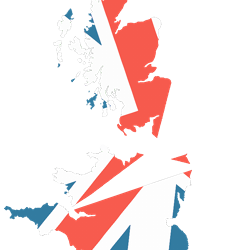
As promised, here is a more in-depth exploration of Wales' relationship to indigeneity or colonised status. And how England created the (political) concept of Great Britain when it formally annexed Wales in 1542. This is a long post but I will try and be brief where possible to do so. I graduated with a degree in Celtic Studies last year from Aberystwyth University so it's time to put that to use.
In my last post, I went over the groundwork for this conversation - so if you haven't read that one yet I strongly suggest you read that one first then come back to this one. In that first post, I establish the stickiness in claiming or applying the status of colonised onto the modern nation and people of Wales. I also explore how claims of indigeneity (intended to legitimise Welsh nativism through dubious claims of descent from the Iron Age Britons) are weaponised in modern political contexts.
With all that said - how does one categorise the suffering of Wales/its culture and language without straying into the language of the colonised?
Early Medieval English Imperial desire for Wales:
Very often, you will hear people make the claim that Wales was 'England's first colony' and that the other nations bordering England were guinea pigs for Britain's later colonial empire. My previous writing on this topic has established the difficulty in applying colonised as a term to Wales and its context. Which leads to the question of what do we describe it as instead?
For this, we need to make a distinction between colonialism and imperialism.
The two concepts are very similar (and do overlap slightly) but they have crucial differences which allow us to be more precise and succinct with our wording which aids both communication of the subject and quells misunderstanding through language which doesn't fit the situation.
Put simply, Imperialism is when one country, people or nation desires to extend power over another (usually a close-by or neighbouring territory) - especially (but not solely) through the means of expansionism.
Colonialism is also when a country, people or nation wants to extend power over another - but primarily through invasion and typically (but not always) against territories that are further afield and not immediate neighbours).
A lot of the way in which we view early British history in Wales is tinged with a kind of exceptionalism for what happened between England and Wales. Very often, what was done is framed as uniquely terrible for the time and held up as a poster child for the unique evil of England's expansionist desires. Yet all over Europe at the same time this was happening - other European nations and peoples were engaging in the same subjugator-subjugatee relationship. The exceptionalism present in framing Wales as uniquely suffering in this period is, unfortunately, borne out of the same British imperial culture which was thrust upon it and has become irrevocably entwined with culturally. It is a kind of British arrogance (which ironically crops up in anti-British arguments in Welsh independence activism) which presupposes nobody could have suffered the same or worse than they have, which demands the active ignorance of other, contemporary examples of that which they claim to oppose.
Wales was the first victim of English (later British) Imperialism - not its first colonial victim.
The build-up to and annexation of Wales by England:
Wales was annexed twice - once before the age of states and once shortly before that age dawned. The concept of states (as in, sovereign countries) didn't really exist until after the Treaties of Westphalia (1648). In which the concept of non-interference in the religious affairs of other countries (and other domestic affairs) was established and international relations was born. This is relevant to Wales' situation - as what England did to Wales happened long before the age of states began.
There was the Conquest of Wales by Edward I between 1277 and 1283. (Before that, the Norman Conquest of Wales by 1081). (However, the latter being conducted by the Normans is not necessarily equatable to the actions of England the country, which itself had only just been invaded by the Normans). And then the Laws in Wales Acts which formally incorporated Wales into the realm of the Kingdom of England in 1542.
The Conquest of Wales by Edward I overran the territories of the last Prince of Wales (from the Welsh monarchic tradition), Llywelyn the Last and divided the territories into Welsh Principalities and Marcher Lordships. This setup remained until 1542, when Henry VIII passed the Laws in Wales Acts and formally annexed Wales and made it (in all the legal senses) a part of England.
By the time international relations was in its infancy (i.e. shortly after the Peace of Westphalia) Wales had been absorbed into England for just over 100 years. The relevancy of this is that Westphalia had been about religious liberty - Henry VIII's incorporation of Wales into the Kingdom of England was partly informed by religion. Henry VIII had just broken away from Rome and established the Protestant Church of England, whereas Wales was still largely Catholic. The Laws in Wales Acts also replaced the language of the courts in Wales with English, cutting off monolingual Welsh speakers from legal representation. The language of worship became English instead of Latin. Wales was culturally assimilated into England over a long period of time. And that meant ensuring Wales followed the 'correct' religion and spoke the 'correct' language. After the Peace of Westphalia, these actions by Henry VIII to bend Wales to his new religion and to assimilate Wales into England would have been in poor taste or decried in light of the new Westphalian system that was developing in Europe. Alas, these events took place before then and temporally speaking, Wales was locked out of this recourse.
By contrast, Scotland was unified with England into the Kingdom of Great Britain in 1707 (after the Peace of Westphalia). England committed numerous acts of cultural erosion and destruction against Wales and Scotland at this time - but its Union with Scotland differs to that with Wales. Wales was incorporated into England, whereas Scotland was 'invited' to join a union between England (which then included Wales) and itself. Simplifying it greatly - like a marriage proposal in which the two spouses are *supposed* to be equals. After the Act of Union with Scotland, the whole island of Great Britain was 'unified' and thus the Kingdom of Great Britain was formed from two states - England (inc. Wales) and Scotland into one state.
Welsh Nationalism and Nationhood as separate from Statehood:
Wales and Scotland were the victims of English imperialism in many similar, but also many different ways.
Wales, having never been a 'state' was unable to acquire this status since it had long been incorporated into England by the time the concept of states had developed. Wales was unlucky in this way, because other nations on this island such as Scotland had managed to establish themselves long enough to survive into the age of states and thus became one. Because of this, Welsh nationalism cannot look to an era in which it was a free state because that did not happen. Instead, Welsh nationalism very often looks back with rose-tinted spectacles to Wales prior to Edward I's conquest and/or prior to Henry VIII's Laws in Wales Acts.
But nationhood and statehood are not the same thing - and it is the conflation of these two concepts (like the conflation of colonialism and imperialism) which has led to much of the confusion on these topics. Nationhood is acquired by a group of people who share several of these things: a common language, history, culture and (usually) territory. Not all of these things are required, but most nations have all or almost all of these qualities. Wales has a language (Welsh), a common history, culture and territory (Wales). Statehood is acquired by an association of people who have most or all of these things: formal institutions of government, laws, permanent territorial boundaries and sovereignty. Wales before 1283 very loosely had government and laws (monarchy and Laws of Hywel Dda) but had no permanent territory due to the conquest and lost some sovereignty in 1283 and total sovereignty in 1542.
Even if Wales had met all the criteria for a state in 1283, it would not have been eligible to become one - no nation in the world was able to do that yet because the concept (or proto-concept) for it would only be invented in 1648. Even England did not qualify for state status yet. Put simply, Wales got very unlucky with history and geography in such a way which prevented it from having a historical statehood post-1648 like neighbouring England and Scotland.
Naturally, when Welsh nationalism attempts to recall a past in which it was a 'state' - it is always an imagined and romanticised history. A fantasied history which generates ideas of the persecuted 'indigenous' Cymro where it shouldn't really be (in all seriousness, the injustices inflicted upon Wales by England are enough - extra additional injustices reliant upon a claim to to 'nativeness' do not need to be invented in order to be taken seriously). In the modern world, claims of nativeness in a European context are fraught, misguided, in poor taste and often copy the homework of the indigenous peoples those same European powers marginalised or colonised. In the modern world, a white Welshman claiming indigeneity is doing so in a postcolonial world and there really is no escaping that. Succinctly - the Welsh nationalist who relies upon a created sense of nativeness can only do so by drawing upon the work of marginalised native peoples living in parts of the world formerly colonised by Great Britain. To claim native status as a Welshman is to misunderstand and misappropriate history while wielding the language of the genuinely colonised while contributing nothing to it. It is purely extractive and a slap in the face of non-European native peoples everywhere. The pining for this return* to a prior point in Wales' history where it was a fully functional, sovereign nation populated only by 'native' or 'indigenous' Cymry is an alarming and ahistorical fantasy that all too easily slides into ethnonationalism and nativism -ancient or modern.
(*the choice of the word 'return' here is no accident - the desire to 'return' is inextricably linked to the alt-right dogwhistle 'retvrn' and it it is frighteningly common to see elements of that subculture crop up in Welsh nationalist calls to return to a point in Wales' history where it was 'sovreign'.)
Welsh nationalism which isn't vigilant to this kind of thinking very often will find itself arguing blatant untruths. For example, on the milder side of fake history, I've come across Welsh nationalist groups claiming symbolism from Owain ap Gruffydd's coat of arms - despite the fact he lived before the age of heraldry and he never used these arms because they were attributed to him later.
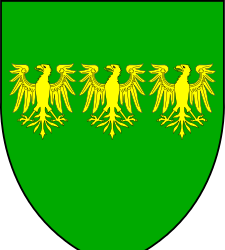
What next for Wales after 1542?:
Since Wales was fully and formally incorporated into the Kingdom of England by 1542, English colonisation of the Americas prior to 1707 naturally included Welsh colonists as well as English colonists. After 1707 Scots joined in with the now British colonisation of the Americas (both as/for/on the side of the Brits and as Scots fleeing Scotland after the Act of Union decimated Scottish Gaelic traditional culture). The Welsh, on the other hand, were more intimately involved with the colonisation of the Americas before that.
Though England spearheaded its colonisation of the Americas, Wales was not an unwilling participant dragged along by its association with and incorporation into England - Welsh colonisation, like Scottish colonisation, was often motivated by religious or cultural persecution - of which colonisation of another land was a possible solution to cultural loss in their home countries. Pennsylvania was settled by many Welsh Quakers and the idea of a Welsh Tract was floated to the Welsh settlers in 1684. The idea was to create a county which would operate in the Welsh language and serve as a vehicle for the preservation of the Welsh language. This attempt was not as successful as Wales' colony in Patagonia, Argentina in which native populations there were displaced at the behest of the Argentinian government - who needed the land settled and cleared. Welsh colonists took up this mantle and created Y Wladfa colony there in 1865.
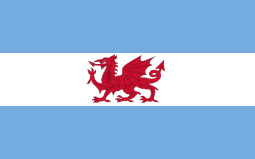
Returning to the 17th Century - Welsh people were active colonists in the Americas during this time - motivated by saving the Welsh language and freedom of religion (especially the developing Nonconformist denominations of Protestant Christianity developing at this time). It was not so much that England was forcing Wales to participate in its colonialism, but that Wales has its own wants and ends for colonialism and was motivated entirely on its own grounds.
Back at home, Wales was still hard-done-by due to England - but two things can be true at once. Wales was a victim of English imperialism, but was also a perpetrator itself of colonial violence against Native Americans. England was no such victim of imperialism of any kind and the power dynamic for England had always been one rooted in absolute expansionism.
Summary and Conclusion:
With all of that said - if you were to ask point blank if I feel it is appropriate or okay for Wales to claim it was colonised by England and that Welsh people are in some way, more indigenous to the island than any other people living here - my answer would be no, I don't think it's okay.
I can't stop people from thinking otherwise, but I can reason that perhaps we shouldn't appropriate the struggles of people marginalised by the very nation we are talking about in order to craft a victimhood which is entirely unnecessary. Wales was a victim of English imperialism - but Wales was also an active colonising European nation. In the modern world, people are thankfully more willing to listen to the wants and needs of victims of colonialism - particularly victims of British colonialism in the Americas, Oceania and Asia. But I would warn against Welsh nationalism which seeks to capitalise on that increase in indigenous visibility in order to add legitimacy to itself (necessitating the crafting of an 'indigenous' narrative which did not exist there before). We live in the modern world where indigenous peoples are being taken more seriously than in centuries past - but that does not mean the only peoples hard-done by being taken seriously are colonised indigenous populations.
I believe it comes from a deep seated insecurity within Wales in which it is not uncommon to feel like Wales is being left behind because of all of this advancement. And this insecurity manifests as rejection of anything not obviously Welsh or demonstrably 'home-grown'. It's the national equivalent of a survival mechanism - but this is detrimental not only to the cause of Welsh nationalism, but to Wales itself. I've had people say to me (and I have read in historical sources from the last 100 years in Welsh) that the LGBTQ+ movement is actually an English invention created to erode Welsh traditional culture. Or variations on that rhetoric in which it is immigrants or other minorities which are made into this boogeyman come to destroy Wales and all Welsh ways of life. And it is so demonstrably not true but also bitter to see from the hearts and minds of my fellow Welsh speakers/Welsh people. Who have been hurt so much by the historical erosion of their culture that they confuse non-threats for threats and can only resolve to obtain some more legitimacy by appropriating the language of nativeness and colonisation in this ever changing world which, right now, is listening to native peoples for once.
It's difficult to put into words, even with all of the background knowledge above - but Wales is valuable and legitimate all on its own and doesn't need to rely upon things which isn't serving it - like ethnonationalism and nativism.
I want to live in a Wales which is uncompromising not only in its own fight for recognition and respect - but for other nations and peoples' fights for the same as well. I want to live in an independent Wales which is an ally to all those who share Wales' struggle and a Wales which rights the wrongs of its past without hesitation or compromise.
Would you rather a Wales for the few or a Wales for all who call it home?
#cymraeg#welsh#wales#cymru#ethnonationalism#cymblr#nativism#indigenous#native#indigeneity#nativeness#tags for relevance#celtic nations#celticist#I know there's so many more things I could say or could add but this post is so long already#granted it's evidence this conversation sorely needs to happen#so if you have any additions or thoughts please reblog or reply in the tags#and reblog this post so that more people have a chance to read it#diolch pawb#long post
135 notes
·
View notes
Text

Truth
#israel#secular-jew#jewish#judaism#israeli#jerusalem#diaspora#secular jew#secularjew#islam#indigenous#indigeneity#Islamic jihad#Islamic colonialism#Islamic invaders#Islamic occupiers
230 notes
·
View notes
Text
I'm not jewish, but I've been thinking about the claim that all jewish people can claim indigeneity to Israel/the levant because judaism originated from the area and traditional jewish prayers are directed towards Israel etc.
But this view of indigeneity feels a bit reductive to me. There's more to a culture than language and religion, and the two doesn't compare to actual material culture or relationship to land. In my mind, I ask myself how westernized jewish ppl from Europe and North America can claim to be indigenous to a place they and their close ancestors haven't stepped foot in for generations.
The population that lived in the region for centuries and farmed the land should be considered indigenous but I doubt the same can be said for the entire jewish diaspora who've developed very different material cultures due to where they live.
I've seen the statement by a zionist on tumblr that among other things such as holidays, prayers and language*, "the clothes we wear and the food we eat are all inherently tied to the land"*.
I doubt those last parts, because theres no way that fur-hats/shtreimels which are worn by orthodox jewish men couldve been developed in the levant. The Palestinian thawb and kuffiye are examples of traditional clothing worn by the native people and actually adapted to the climate of the region and carry with them symbols of cultural significance.
I felt nervous writing this, as I know its a controversial position to hold. Im not saying that no jewish person is native to the Levant, just that I doubt that religion and language alone makes someone "indigenous".
53 notes
·
View notes
Text
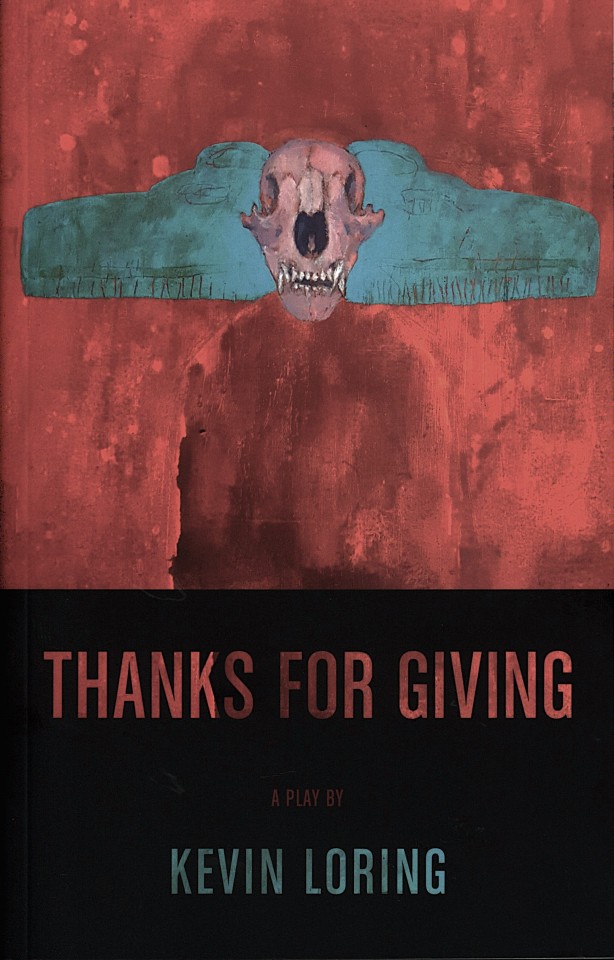
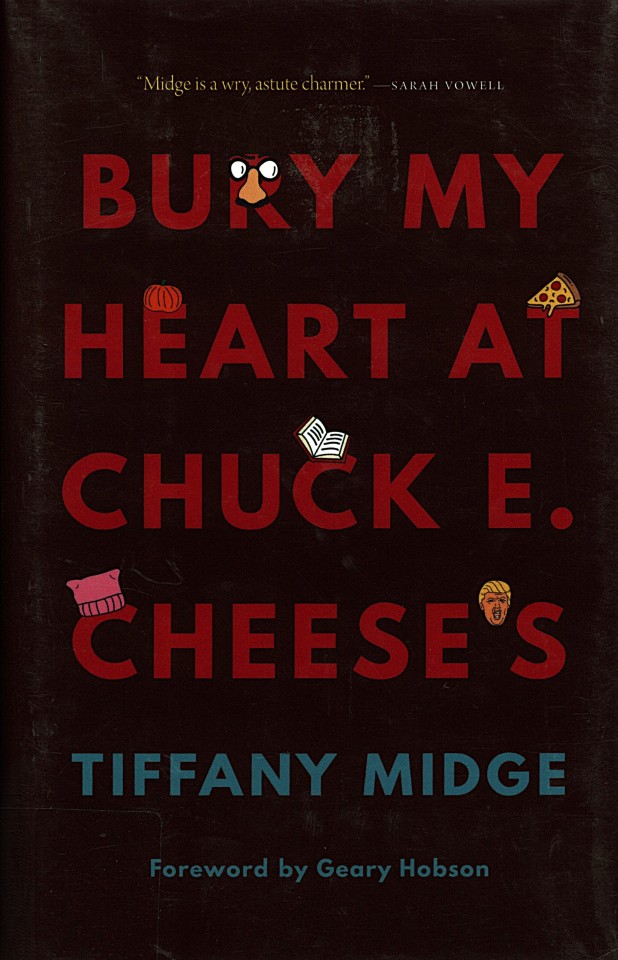
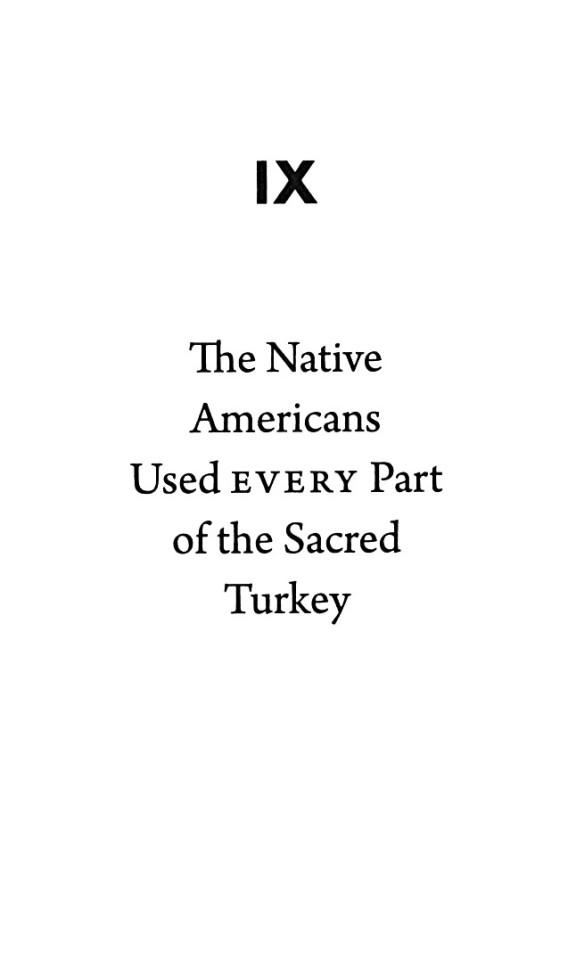
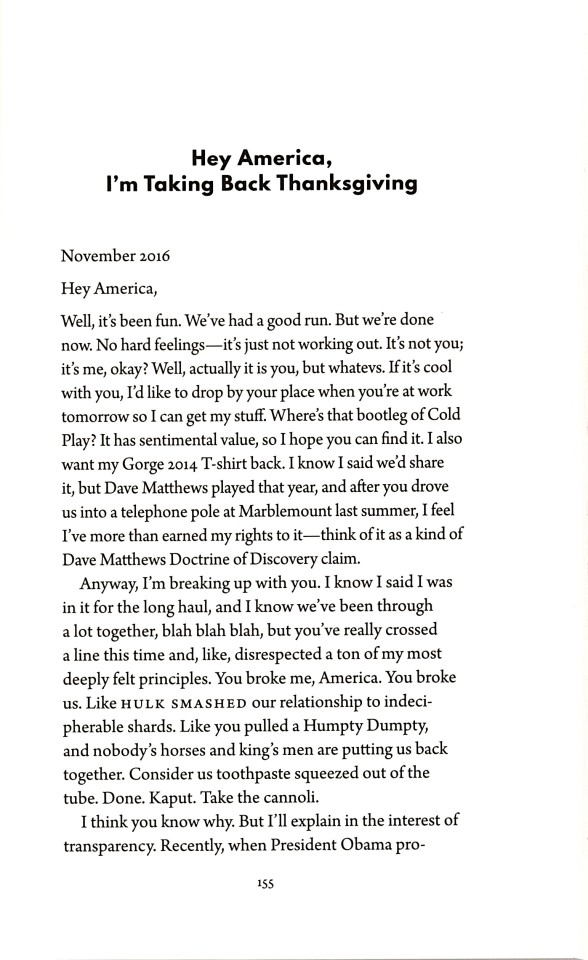
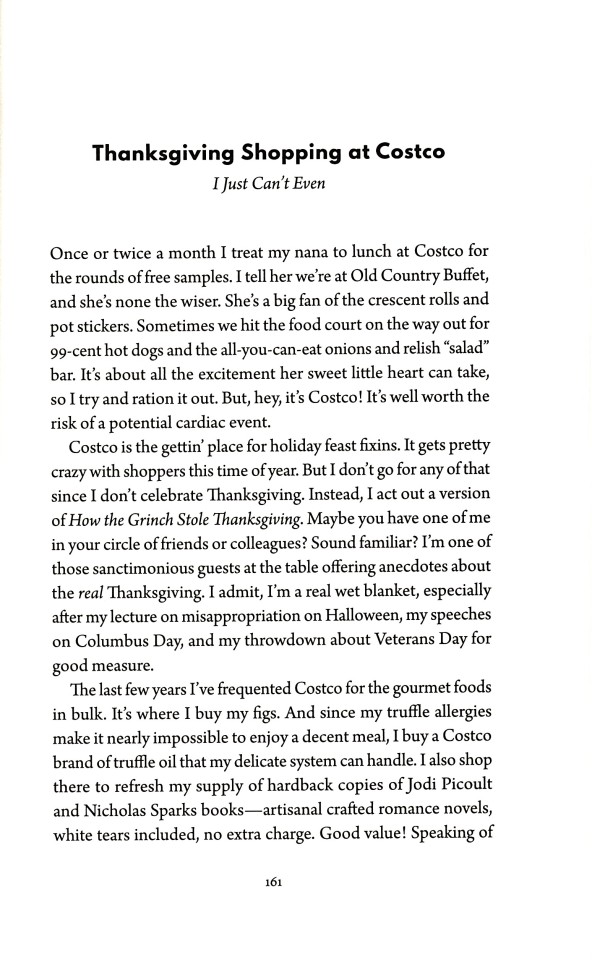
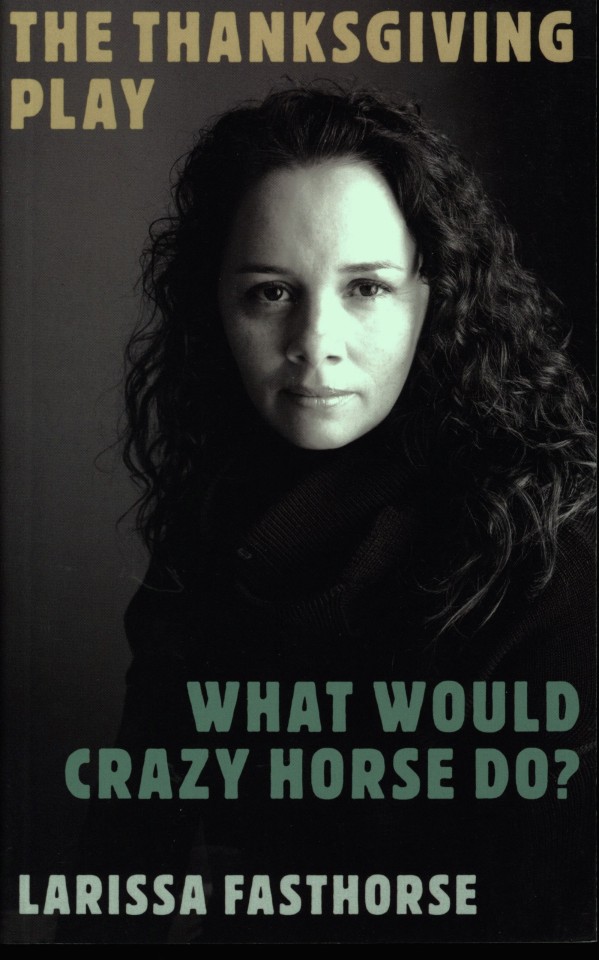
An Indigenous Thanksgiving
Here's a short list of titles for your holiday reading by three noted Indigenous writers: Kevin Loring (Nlaka'pamux; b. 1974); Tiffany Midge (Hunkpapa Lakota; b. 1965); Larissa FastHorse (Sicangu Lakota).
In Loring's play Thanks for Giving (Talonbooks, 2018), a mixed-family Thanksgiving dinner comes face to face with some unsolicited truths and sibling rivalry, where the old ways surrender to new possibilities, but the family's enduring spirit continues forward, ever fierce.
FastHorse's publication presents two of her plays The Thanksgiving Play (2017) and What Would Crazy Horse Do? (2014), published together by Theatre Communications Group in 2021. In The Thanksgiving Play, a group of well-intentioned white teaching artists scramble to create an ambitious "woke" Thanksgiving pageant that also celebrates Native American Heritage Month. Amidst their eagerness to put on the most culturally sensitive show possible, things quickly begin to devolve into the absurd. In What Would Crazy Horse Do?, Calvin and Journey--twins who are the last two members of Marahotah clan -- flounder after their grandfather's passing, and form a suicide pact in case their lives on the reservation become too hopeless.
Midge's Bury My Heart at Chuck E. Cheese's (University of Nebraska Press, 2019) is a compelling collection of the author's satirical musings on life, politics, and identity as a Native woman in America. We leave you with a snippet from Midge's Thanksgiving offering, "Hey America, I'm Taking Back Thanksgiving":
Hey America, Well, it's been fun. We've had a good run. But we're done now. No hard feelings -- it's just not working out. It's not you; it's me, okay? Well, actually it is you, but whatevs. . . . Anyway, I'm breaking up with you. . . . You broke me, America. You broke us. . . . I think you know why. . . . I'm taking back Thanksgiving. It was mine to begin with; you were just appropriating it to satisfy your need for some happy-go-lucky fairy tale in the midst of crimes against humanity. . . . No turkey for you. I'm taking it back. . . . No more cranberries, no more stuffing. And that roasted brussels sprouts dish your grandma makes, . . . I'm taking that too. . . . Don't Tweet me, don't message me. We're done. I hope you figure yourself out and someday get your life and your country together. Good luck. . . . P.S. I flirted with Canada behind your back, but they're not working out either, so don't even think of looking for me there. I've moved on.
While Midge has moved on, we haven't quite yet, and we wish you a pleasant Thanksgiving Day.
View posts from Thanksgivings past.
View other posts from our Native American Literature Collection.
#Thanksgiving#Thanksgiving Day#Indigenous authors#Indigenous writers#Native American authors#Native Americans#Indigenous#indigeneity#Kevin Loring#Tiffany Midge#Larissa FastHorse#plays#Indignous plays#Native American Literature Collection#Indigenous American Literature Collection
51 notes
·
View notes
Text
Francis Spufford’s “Cahokia Jazz”

Tomorrow (December 5), I'm at Flyleaf Books in Chapel Hill, NC, with my new solarpunk novel The Lost Cause, which 350.org's Bill McKibben called "The first great YIMBY novel: perceptive, scientifically sound, and extraordinarily hopeful."

Francis Spufford's Cahokia Jazz is a fucking banger: it's a taut, unguessable whuddunit, painted in ultrablack noir, set in an alternate Jazz Age in a world where indigenous people never ceded most the west to the USA. It's got gorgeously described jazz music, a richly realized modern indigenous society, and a spectacular romance. It's amazing:
https://www.simonandschuster.com/books/Cahokia-Jazz/Francis-Spufford/9781668025451
Cahokia is the capital city of Deseret, a majority Catholic, majority indigenous state at the western frontier of the USA. It swirls with industry, wealth, and racial politics, serving as both a refuge from Jim Crow and a hive of Klan activity. Joe Barrow is new in town, a veteran who survived the trenches of WWI and moved to Cahokia with his army buddy, Phineas Drummond, where they both quickly rose through the police ranks to become detectives.
We meet Joe and Phin on a frigid government building rooftop in the predawn night, attending a grisly murder. Someone has laid out a man across a skylight, cut his throat, split his chest open, and excised his heart. This Aztec-inspired killing points at Cahokian indigenous independence gangs, some of whom embrace an apocryphal tale of being descended from Mesoamerican conquerors in the distant past. That makes this more than a mere ugly killing – it's a political flashpoint.
The Klan insists that Cahokia's system of communal land ownership is a form of communism (Russia never ceded Alaska in this world, so the USSR is now extending tendrils across the Bering Strait). They also insist that Cahokians' reverence for the Sun and the Moon – indigenous royals who have formally ceded power to elected leaders – makes them a threat to democracy. Finally, the Cahokians' fusion of Catholocism with traditional faith makes the spritually suspect. A rooftop blood-sacrifice could cause simmering political tension to boil over, and for ever white oligarch drooling at the thought of enclosing the shared land of Deseret, there are a thousand useful idiots in white hoods.
Joe and Phin now have to solve the murder – before the city explodes. But Phin seems more interested in pinning the case on an Indian – any Indian – than he is on solving the murder. And Joe – an indigenous orphan who has neither the language nor the culture that the Cahokians expect him to have – is reappraising his long habit of deferring to Phin.
This is the setup for a delicious whodunnit with a large helping of what if…? but Spufford doesn't stop there. Joe, you see, is a jazz pianist, and his old bandmates are back in town, and one thing leads to another and before you know it he's sitting in with them at a speakeasy. This gives Spufford a chance to roll out some of the most evocative, delicious descriptions of jazz since Doctorow's Ragtime (no relation):
https://www.penguinrandomhouse.ca/books/41529/ragtime-by-e-l-doctorow/9780812978186
It's not just the jazz. This is a book that fires on every cylinder: there's brilliant melee (and a major battle set-piece that's stunning), a love storyline, gunplay, and a murder mystery that kept me guessing right to the end. There's fakeouts and comeuppances, bravery and treachery, and above all, a sense of possibility.
Most of what I know about Cahokia – and the giant mounds it left behind near St Louis – I learned from David Graeber and David Wengrow's brilliant work of heterodox history, The Dawn of Everything:
https://pluralistic.net/2022/03/08/three-freedoms/#anti-fatalism
Graeber and Wengrow's project is to make us reassess the blank spaces in our historical record, the ways of living that we have merely guessed at, based on fragments and suppositions. They point out that these inferences are vastly overdetermined, and that there are many other guesses that fit the facts equally well, or even better. This is a powerful message, one that insists that history – and thus the future – is contingent and up for grabs. We don't have to live the way we do, and we haven't always lived this way. We might live differently in the future.
In evoking a teeming, indigenous metropolis, conjured out of minor historical divergences, Spufford follows Graeber and Wengrow in cracking apart inevitability and letting all the captive possibility flow out. The fact that he does this in a first rate novel makes the accomplishment doubly impressive – and enjoyable.

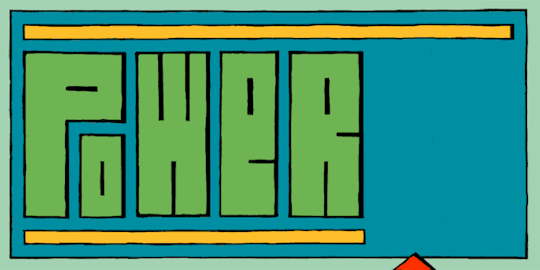
It's EFF's Power Up Your Donation Week: this week, donations to the Electronic Frontier Foundation are matched 1:1, meaning your money goes twice as far. I've worked with EFF for 22 years now and I have always been - and remain - a major donor, because I've seen firsthand how effective, responsible and brilliant this organization is. Please join me in helping EFF continue its work!

If you'd like an essay-formatted version of this post to read or share, here's a link to it on pluralistic.net, my surveillance-free, ad-free, tracker-free blog:
https://pluralistic.net/2023/12/04/cahokia/#the-sun-and-the-moon
#pluralistic#alternate history#science fiction#indigeneity#cahokia#frances spufford#books#reviews#gift guide#jazz#music
96 notes
·
View notes